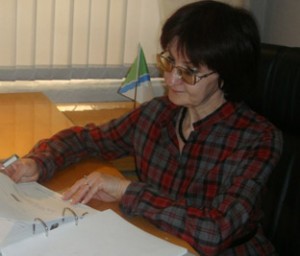Historical Education and Historical Policy in the Countries of the Asia-Pacific Region.
Historical education and historical policy in the countries of the Asia-Pacific Region.
In Russia, year 2012 is declared the Year of the Russian history. At the same time, Commission against falsifications of history to the detriment of the Russia’s interests, established under the President of the Russian Federation, offers to strengthen the control over the media, cultural expressions and education literature, associated with historical education and, increasingly, with the formation of the historical memory and national identity of Russians.
These actions cause ambiguous reaction of the scientific and pedagogical community: from the traditional “approve” to the predictions of the return of the total state censorship of historical science, culture and education.
- Where are the boundaries between the historical policy, the historical science and historical education in different countries of the world (in Russia and countries of the Asia-Pacific region, in particular)?
- How changed the role of History in modern society (in Russia and countries of the Asia-Pacific region, in particular)?
- What history lean the pupils and students in the different countries of the world and the countries of the Asia-Pacific region, in particular? How such “history” affect the understanding and the dialogue of cultures in the modern world?
- What are the images of the countries of the Asia-Pacific region in the national history textbooks? How international conflicts and the experience of interaction between the peoples of Asia-Pacific region in the 20TH century? How they perform the international conflicts and the collaboration experience of the peoples of Asia-Pacific region in XX century? In which way highlights the present and prospects of development of the countries of the Asia-Pacific region in the future?
Groundwork for the development of international historical-educational cooperation with the countries of the Asia-Pacific region:
– In 1998 Far Eastern State University of Humanities (FESUH) under the auspices of the Council of Europe and ministry of defense of the Russian Federation held the international seminar “The teaching of history in multicultural societies and border areas”, published by the eponymous collection of scientific papers and analytical report (Khabarovsk, 1999; Strasbourg, 1999).
– 1999 – 2001 Russian-Japanese project “the Study of history in Russia and Japan” (Council of Europe, Tokyo, st. Petersburg, 1999 – 2001.), Strelova O.Y. History of Japan in textbooks of Russia and the Far East (in Russian,/JPN. and English) \\ Program for the development and consolidation of democratic stability, the meeting of experts on the history from Russia and Japan (Tokyo, 20000: Strasbourg. DGIV/EDU/HIST (2000) 10;
– participation in international projects of the Council of Europe and EVROKLIO in the field of historical education and preparation of history teacher, published O. Strelova. Balancing the Acqusition of the Knowledge and the Development of Methodological Skills: a Russian perspective // After the Wall: History Teaching in Europe since 1989 – Korber stiftung, 2004; the international seminar “the Mosaic of cultures” (the teaching of history in multicultural Russia), Khabarovsk, 2005, etc.
-the international educational project “Historical education in modern Russia and Mongolia” (FESUH (Khabarovsk)-BSU (Ulan Ude) – Ulan Bator, the 2008-2009).
Olga Strelova, Doctor of Pedagogical Sciences, Professor
Contact: ostrelova@mail.ru
Levshin Sergey “Concrete — mixer as a symbol of technogenic tragedy”

